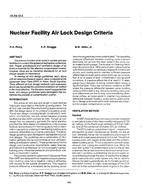Proposes a new tuning method when using a two degrees of freedom proportional-integral-derivative (PID) controller. Its control performance for a first-order lag plus deadtime system is shown as an example of the commonly approximated controlled plants in the heating, ventilating, and air conditioning (HVAC) field. Reference and disturbance input changes to a conventional PID controller do not necessarily give a satisfactory response. To overcome this problem, several two degrees of freedom PID (2 DOF PID) algorithms have been developed to replace the conventional PID controllers. However, when these techniques are applied to real plants, it is not usually easy to obtain a set of optimum tuning parameters. To evaluate the control performance, a comparison is carried out between the two tuning methods – the optimisation technique and the partial model matching method – using simulation. Graphs by which the controller parameters can be related to dynamics of a popular plant are developed. The 2 DOF PID control is studied taking into account modelling error due to a change in plant characteristics. It is found that the 2 DOF PID controller design based on the partial model method is robust and useful in simulations where a traditional PID controller would be used.
KEYWORDS: year 1997, Controls, heating, ventilation, air conditioning, building services, performance, comparing, accuracy, algorithms, room temperature, optimisation, measuring
Citation: ASHRAE Trans. 1997, Vol.103, Part 1, Paper number 4039, 278-289, 10 figs., 1 tab., 9 refs.
Product Details
- Published:
- 1997
- File Size:
- 1 file , 1.1 MB
- Product Code(s):
- D-16387


